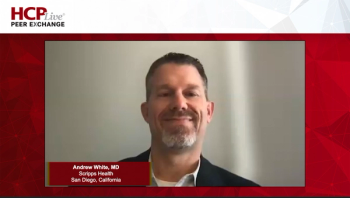
Experts outline biomarkers to measure asthma, highlighting eosinophil count and fractional exhaled nitric oxide levels.

Experts outline biomarkers to measure asthma, highlighting eosinophil count and fractional exhaled nitric oxide levels.
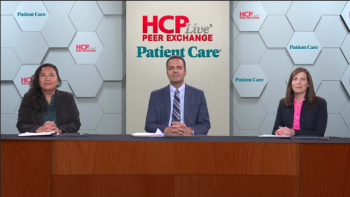
Experts discuss the use of biologic treatment in asthma by primary care physicians vs pulmonology specialists as well as overcoming barriers to biologic use through patient and physician education.
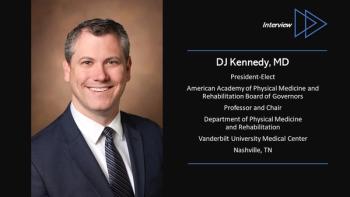
When is a primary care patient with back pain ready for referral to PM&R? No formulas available but basic principles hold true and earlier is always better.

Recurrent back pain is common, so teaching patients how to stay strong and flexible—and also when to get help—is essential, says Vanderbilt physiatrist DJ Kennedy, MD.

The challenge posed by a complaint of back pain is not that the origin is unknowable but rather the remarkable heterogeneity in this condition, says the president-elect of the American Academy of Physical Medicine & Rehabilitation.
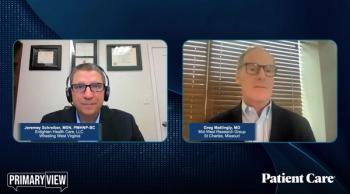
Greg Mattingly, MD, and Jeremey Schreiber, MSN, PMHNP-BC, discuss the typical strategies for switching therapies for major depressive disorder (MDD).
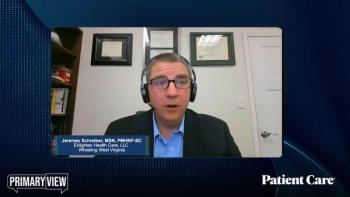
Practitioners discuss the need to treat patients with major depressive disorder (MDD) to a complete remission vs a decline in symptomology.

Experts comment on switching from 1 biologic treatment to another, as well as combining biologics with steroids or other treatments in asthma.

Andrew White, MD, discusses choosing the right biologic for patients with severe asthma, considering factors such as asthma comorbidities as well as patient preference.
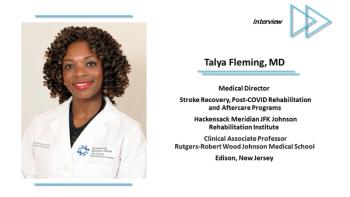
Primary care clinicians will need to be particularly alert for signs of long COVID in older patients as some signs and symptoms may be easily attributed to the aging process.
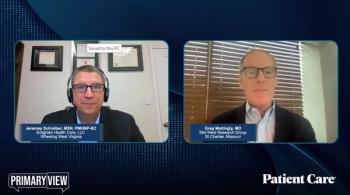
Greg Mattingly, MD, and Jeremey Schreiber, MSN, PMHNP-BC, discuss best practices for monitoring and follow-up with patients with major depressive disorder (MDD) to ensure treatment efficacy and safety.
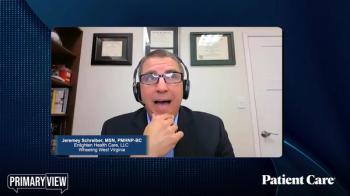
Practitioners discuss their approach to treatment with their patients with major depressive disorder (MDD).

Dareen D. Siri, MD, FAAAAI, FACAAI, reviews the efficacy and safety of dupilumab for the treatment of asthma, as well as which patients are good candidates for dupilumab.

Nicole Chase, MD, FAAP, FACAAI, FAAAAI, provides an overview of the difference between single and dual inhibition of interleukins, focusing on dupilumab as a dual inhibitor for asthma treatment.

The importance of avoiding judgement, monitoring behavior, and cardiovascular risk prevention in primary care are discussed, here.

For older adults who feel limited by physical changes associated with aging, physiatry can help maintain strength and flexibility along a continuum of primary care.

Early intervention is crucial to help prevent complications in patients with obesity and type 2 diabetes. Two experts explain more, here.
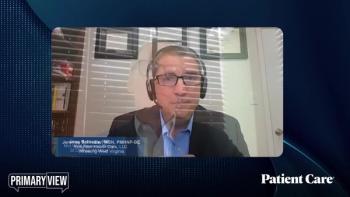
Experts discuss how practitioners are viewing major depressive disorder (MDD) as a chronic condition vs an episodic condition.
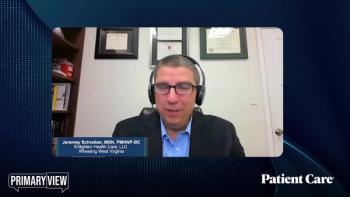
Greg Mattingly, MD, and Jeremey Schreiber, MSN, PMHNP-BC, discuss navigating the challenge of a “one size fits all approach” when treating and identifying the specific needs of patients with major depressive disorder (MDD).

Experts discuss the use of biologic agents to manage asthma and describe the mechanisms of action of different biologics.

Medical expert highlights the risk of overuse of oral corticosteroids in the management of asthma and reviews alternative treatment options.
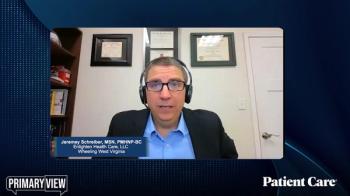
Practitioners discuss the rates of undertreatment in patients suffering from major depressive disorder (MDD).

Greg Mattingly, MD, and Jeremey Schreiber, MSN, PMHNP-BC, comment on the perception of major depressive disorder (MDD) within the healthcare community and the clinical and practical implications of is this condition.

Listen to 2 obesity experts discuss the impact of the COVID-19 pandemic on obesity-related type 2 diabetes.

Andrew White, MD, reviews the definition of difficult-to-treat or severe asthma as outlined in the GINA (Global Initiative for Asthma) guidelines.

Experts discuss the process of choosing a treatment plan for patients with severe allergic or eosinophilic asthma.

Early intervention is important to reduce the risk for complications for patients with obesity and type 2 diabetes. Two obesity experts explain more, here.

Andrew White, MD, provides an overview of the asthma treatment landscape, focusing on inhaled and oral corticosteroids, as well as biologic and nonbiologic agents.

Dareen D. Siri, MD, FAAAAI, FACAAI, reviews the tools available to predict the exacerbation of asthma, highlighting spirometry and biomarkers as effective tools.

Listen to 2 obesity experts discuss and analyze the role of insulin resistance in type 2 diabetes and obesity.